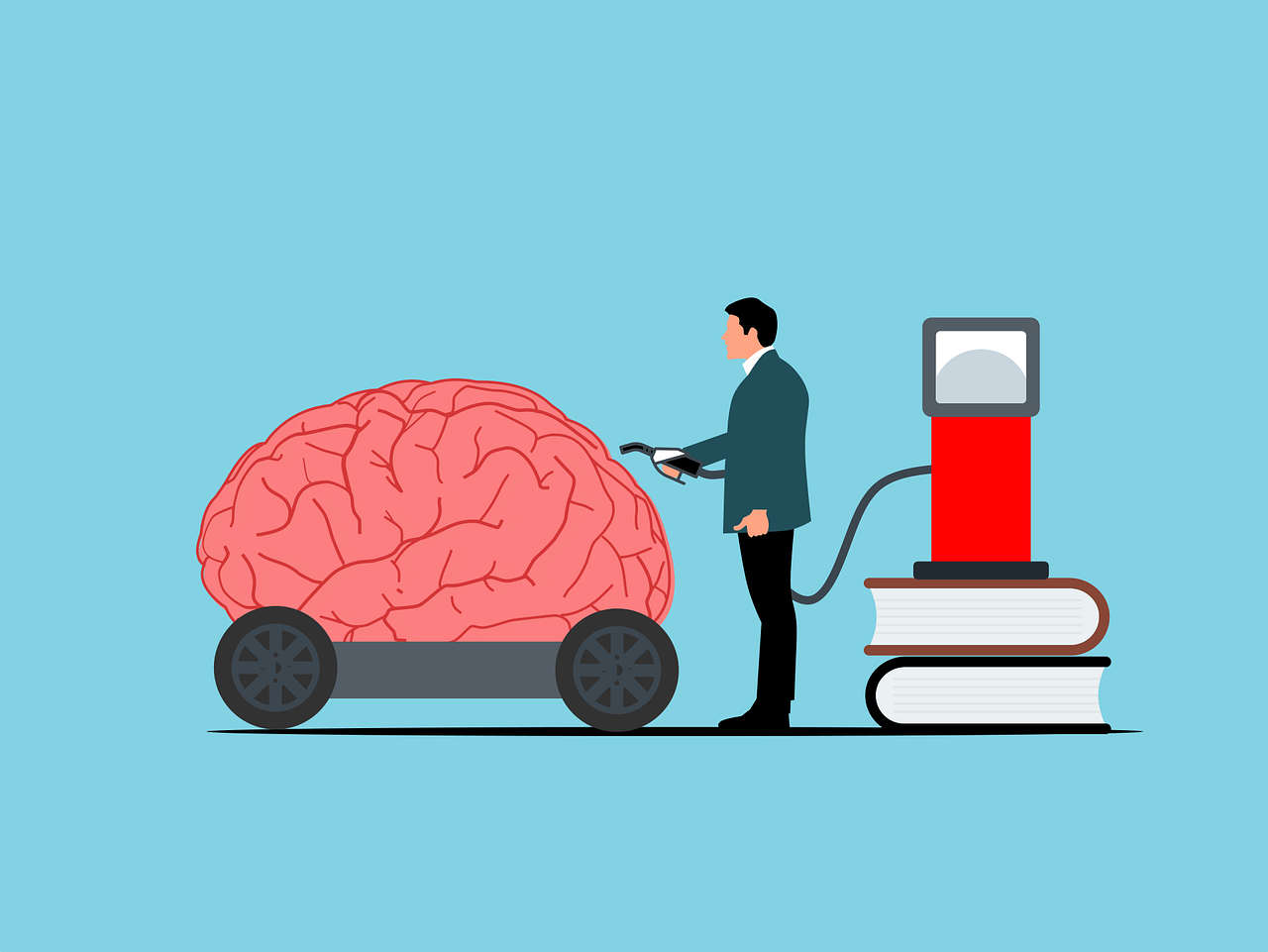Your Cart is Empty
Free Shipping For All Your Sleep & Recovery Essentials | Use code SR5 for 5% off your first order
Menu

Free Shipping For All Your Sleep & Recovery Essentials | Use code SR5 for 5% off your first order

Unlocking the Power of Sleep: How Prioritizing Rest Enhances Brain Function and Emotional Wellbeing
April 08, 2023 6 min read
We all know how important it is to get a good night's sleep. But did you know that sleep plays a crucial role in brain function and overall health? The connection between sleep and the brain is a complex one, and understanding this relationship can help you prioritize your sleep and improve your wellbeing.
For many of us, getting enough sleep can be a struggle. We live in a world that values productivity and busyness, and it can be tempting to sacrifice sleep in order to get more done. However, this can have serious consequences for our health and cognitive function. Lack of sleep can lead to poor concentration, impaired memory, and mood swings, among other things. In the long term, chronic sleep deprivation can contribute to the development of chronic diseases such as obesity, diabetes, and cardiovascular disease.
So, why is sleep so important for the brain? When we sleep, our brains undergo a variety of important processes that help to maintain and enhance cognitive function. During sleep, the brain consolidates memories and strengthens neural connections that are essential for learning and memory. Sleep also plays a crucial role in emotional regulation, helping us to process and cope with stress and negative emotions.
In addition, sleep affects brain waves and neurotransmitters, which can impact mood, energy levels, and cognitive function. Research has shown that lack of sleep can disrupt the balance of key neurotransmitters such as dopamine and serotonin, which are essential for mood regulation.
For those who struggle with sleep, it can be challenging to prioritize sleep and make it a regular part of their routine. However, there are strategies you can use to improve your sleep hygiene and optimize your sleep environment. In the following sections, we'll explore the science of sleep and the brain, and offer practical tips for improving your sleep quality and quantity. By prioritizing your sleep, you can enhance your cognitive function, improve your mood, and enhance your overall health and wellbeing.
The Basics of Sleep
In order to understand the relationship between sleep and the brain, it's important to first understand the basics of sleep itself. Sleep is a complex process that involves several stages, each with its own unique characteristics and functions.
There are two main categories of sleep: non-REM sleep and REM sleep. Non-REM sleep is further divided into three stages:
Stage 1: This is the stage of light sleep, during which you may experience drifting in and out of consciousness. Your muscles may still be active, and you may experience muscle twitching or jerking.
Stage 2: This is a deeper stage of sleep, during which your heart rate and breathing slow down, and your body temperature drops. Your brain waves also become slower, and you spend more time in this stage than in any other stage of sleep.
Stage 3: This is the deepest stage of non-REM sleep, during which your brain waves become even slower, and your body is in a state of complete relaxation. It can be difficult to wake up from this stage of sleep, and if you do wake up, you may feel disoriented and groggy.
REM sleep is characterized by rapid eye movement and more frequent dreaming. During REM sleep, your brain waves become more active, and your heart rate and breathing may become irregular. REM sleep is important for cognitive function and emotional regulation, as well as for memory consolidation and learning.
In addition to these stages of sleep, another key factor in the sleep process is the role of circadian rhythms. Circadian rhythms are the internal biological processes that regulate our sleep-wake cycles. They are controlled by a variety of factors, including light exposure, hormones, and other environmental cues. When our circadian rhythms are disrupted, it can lead to difficulty falling asleep, staying asleep, or waking up at the appropriate times.
Understanding the stages of sleep and the role of circadian rhythms can help you to better understand your own sleep patterns and develop strategies for improving your sleep hygiene. In the following sections, we'll explore the impact of sleep on brain function and offer tips for improving your sleep quality and quantity.
Sleep and the Brain:
Sleep plays a vital role in brain function, and the impact of sleep on cognitive processes such as memory, learning, and attention has been widely studied. When we sleep, our brains consolidate memories and reinforce neural connections that are essential for learning and memory retention. This is why getting a good night's sleep before a big exam or presentation is so important - it helps your brain to retain the information you've learned and perform at its best.
In addition to memory consolidation, sleep also plays a key role in attention and cognitive processing. Studies have shown that sleep deprivation can impair attention and reaction time, making it more difficult to concentrate and perform complex tasks. This can have serious consequences for activities such as driving or operating heavy machinery, where split-second decisions and reaction times can be critical.
Sleep also has a significant impact on emotional regulation. During sleep, our brains process and consolidate emotional memories, helping us to regulate our emotions and cope with stress. This is why getting enough sleep is so important for mental health, as chronic sleep deprivation can contribute to the development of mood disorders such as anxiety and depression.
Interestingly, research has also shown that the relationship between sleep and emotion regulation is bidirectional. In other words, not only does sleep impact emotional regulation, but our emotional state can also impact the quality and quantity of our sleep. For example, individuals who are experiencing high levels of stress or anxiety may struggle with falling or staying asleep, leading to a vicious cycle of sleep deprivation and emotional dysregulation.
Overall, the connection between sleep and brain function is a complex and multifaceted one. By prioritizing sleep and developing good sleep hygiene habits, you can improve your cognitive function, enhance your emotional regulation, and enhance your overall health and wellbeing. In the following sections, we'll explore the science of sleep and the brain in more detail, and offer practical tips for improving your sleep quality and quantity.
The Science of Sleep and the Brain:
The relationship between sleep and the brain is a complex one, involving a variety of physiological processes and chemical reactions. One important factor is the impact of sleep on brain waves and neurotransmitters. During sleep, brain waves slow down and become more synchronized, which is thought to be important for memory consolidation and other cognitive processes.
In addition, sleep affects the levels of various neurotransmitters in the brain, including serotonin, dopamine, and norepinephrine. These chemicals are involved in a wide range of functions, from mood regulation to attention and motivation. Lack of sleep can disrupt the balance of these neurotransmitters, leading to mood disorders and other cognitive impairments.
Another important process related to sleep and the brain is the glymphatic system. This system is responsible for clearing waste products and other toxins from the brain, and it appears to be most active during sleep. Research has shown that sleep-deprived individuals have impaired glymphatic function, which may contribute to cognitive decline and other health problems.
Sleep Disorders and Brain Function
Sleep disorders such as insomnia, sleep apnea, and restless leg syndrome can have a significant impact on brain function. Insomnia, for example, can lead to cognitive impairments such as memory deficits and decreased attention span. Sleep apnea, which causes interruptions in breathing during sleep, has been linked to a range of cognitive and neurological problems, including decreased gray matter in the brain.
In addition, sleep disorders can also have a significant impact on mental health. Chronic sleep deprivation has been linked to an increased risk of mood disorders such as depression and anxiety. Sleep disorders can also exacerbate symptoms of other mental health conditions, such as bipolar disorder and schizophrenia.
Tips for Improving Sleep and Brain Function
Improving your sleep hygiene can have a significant impact on brain function and overall health. Here are some strategies for improving your sleep quality and quantity:
- Establish a consistent sleep schedule and stick to it, even on weekends
- Create a sleep-friendly environment by keeping your bedroom cool, dark, and quiet
- Limit exposure to screens and other electronic devices before bed
- Avoid caffeine and alcohol before bedtime
- Exercise regularly, but avoid vigorous exercise before bed
- Practice relaxation techniques such as meditation or deep breathing before bed
By incorporating these habits into your routine, you can improve your sleep hygiene and enhance your brain function.
Conclusion
Sleep plays a vital role in brain function and overall health. From memory consolidation to emotional regulation, the impact of sleep on the brain is far-reaching and complex. By prioritizing sleep and developing good sleep hygiene habits, you can improve your cognitive function, enhance your emotional regulation, and enhance your overall health and wellbeing. Whether you struggle with sleep or simply want to optimize your brain function, improving your sleep habits is an essential step toward a healthier, happier you.

